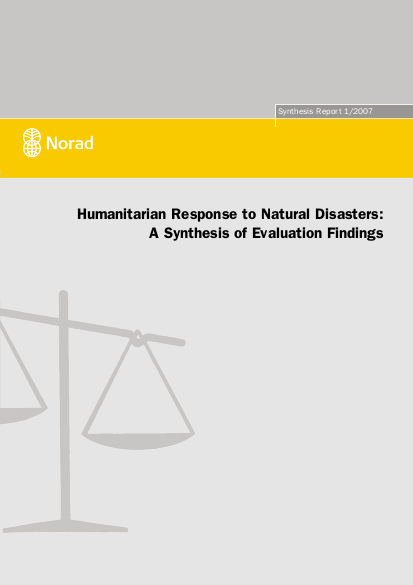
The findings of this report can be summarised in five points: • Firstly, it is consistently found that the divide between humanitarian disaster response and development cooperation continues to prevail despite increased emphasis on the need to link relief, recovery and development. • Secondly, there is strong focus on needs assessment as a prerequisite for effective, equitable humanitarian response, but it is also commonly observed that actual assessment practice shows substantial deviations from this norm. • Thirdly, it is a common experience that international humanitarian response undermines rather than bolsters local capacity, despite growing emphasis on the importance of local capacity in humanitarian response and long-term vulnerability reduction. • Fourthly, it is a recurrent theme in evaluation reports that there is a great and persistent need to find effective mechanisms for coordinating the multitude of actors in the humanitarian system. • Fifthly, the evaluation reports show that there is growing awareness of the need for disaster preparedness and vulnerability reduction, but there are relatively few examples of good practices.